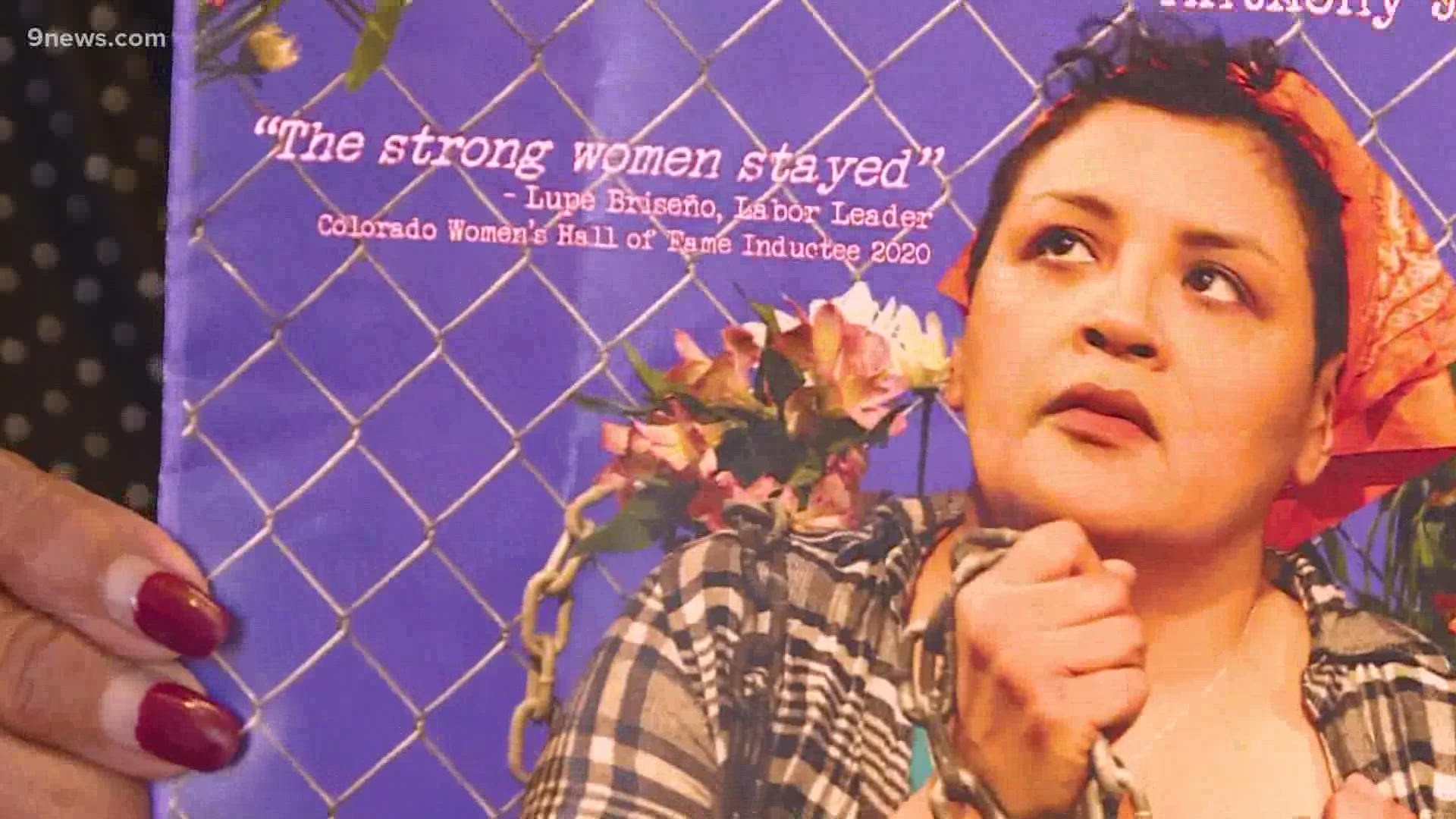COLORADO, USA — In 1969, full-time mom Guadalupe Briseño decided to get her first job since getting married to help bring home more income. She found work with some of her friends at the Kitayama Brothers Inc., a floral plant in Brighton, Colorado. Most of the employees were Mexican-American women, Briseño said.
Not long after she started working there, Briseño noticed some of her friends and colleagues were in low spirits, others were crying. That's when she found out about the poor treatment of employees, in addition to working conditions that Briseño said often led to health issues.
"Inside the plant, it’s very humid. You work under a roof and have to walk through mud," she said. Many of the workers would catch colds or pneumonia and were not given sick time, according to Briseño. She said they often had to work long overtime hours with no pay.
"We were trying to change this ways of treatment for the people that are working for 99 cents and the way they treat you, that is not right no matter what kind of work you do."
Briseño decided to hold a meeting at the plant for the workers to express their concerns to their boss, Ray Kitayama.
"We’re all sitting waiting for everyone to show up, and the first one to walk in the house, Mr. Ray Kitayama, and he orders every man and woman inside the building to go home and report back to work tomorrow."
Briseño wasn't afraid to speak up. In July 1968, she and five other women began protesting the poor working conditions and went on a strike that lasted 221 days. The other woman were Rachel Sandoval, Martha del Rael, Mary Padilla, and Mary Silas.
Briseño's husband was a farm worker in Denver and was also part of a union. "He talked about the benefits of the union and how everybody supports each other, so why not have one here in this plant?"
"People here in Brighton, Commerce City, Boulder, students came from all over to support us because they knew that what was going on in there, it was wrong," said Briseño. For eight months, support kept pouring in, and protesters would arrive at the floral plant at 6 a.m. Some would not leave until 7 p.m. or 8 p.m. that evening.
On the last day of their protest, Briseño and the other women wanted to make one last gesture of peaceful protesting and chained themselves to the gate outside of the plant. Shorty after, police officers arrived.
"The police came in with tear gas, and tear gassed us when we were in our knees," Briseño said. Later, she was fired from Kitayama Corporation.
"It just feel like it’s a slap in the face, what did I do to be fired? Just for speaking up?"
Even after she was no longer employed with the plant, Briseño said she did not want to stop fighting.
"We got a contract with a lawyer, with the union, and we took him (Kitayama) to court," Briseño said. "They win of course, but they got the benefits at the green house later on little by little."
Protestors were not able to unionize at the floral plant, but over time, working conditions improved.
The story of the Kitiyama Carnation Strike is not widely known, but a local theater company in Denver, Su Teatro, hosted a play based on the events of the 221 day long strike.
Briseño said watching the play was emotional and quickly took her back in time. "You see what we went through, when they teargassed us, and we go on the picket line and people insult you," she said.
In 2020, Briseño was inducted into the Colorado Women's Hall of Fame for her activism in during the 8 month long strike.
SUGGESTED VIDEOS: Voices of Change

